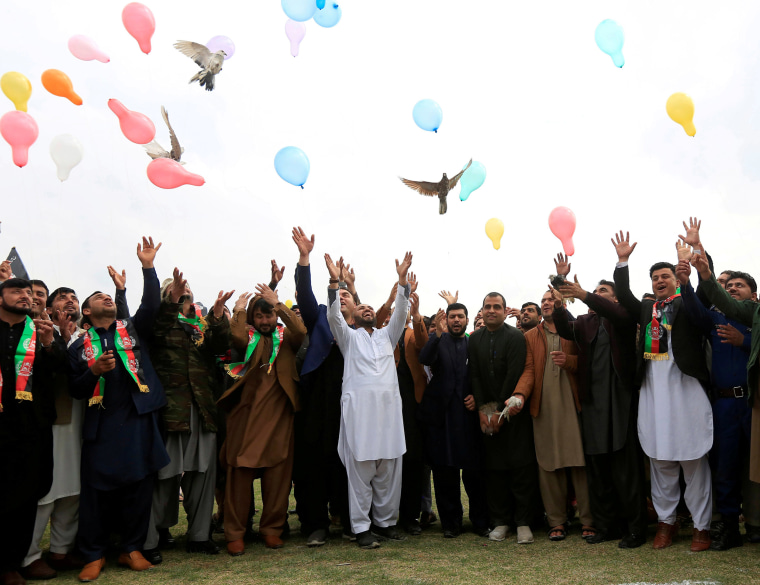For much of the U.S. war in Afghanistan, American officials have grudgingly sought negotiations with the Taliban. To be sure, it wasn't their first choice, but a realistic approach to the conflict necessitated the outreach. The Taliban's power in Afghanistan was simply too much to ignore.
For years, Donald Trump didn't see it that way. Eight years ago, as the Obama administration worked on possible resolutions, the future president lashed out, condemning the Democratic team for "negotiating with our sworn enemy the Taliban -- who facilitated 9/11."
The Republican's posture has changed rather dramatically. Last week, Trump not only said he planned to "meet personally with Taliban leaders," he also praised Taliban militants as "great fighters" whom he expects the United States to indirectly partner with. "We've killed ISIS fighters by the thousands, and likewise in Afghanistan, but now it's time for somebody else to do that work and that'll be the Taliban," the president added.
Yesterday, as the Wall Street Journal noted, Trump went even further.
President Trump said he spoke to the Taliban's co-founder Mullah Abdul Ghani Baradar on Tuesday to discuss the implementation of the deal signed over the weekend to withdraw U.S. troops from Afghanistan, according to statements released afterward. Mr. Trump is believed to be the first U.S. president to speak to a senior Taliban figure since the U.S. ousted the group from power in 2001 for refusing to hand over al Qaeda leader Osama bin Laden after the Sept. 11 attacks.
In public remarks, Trump specifically boasted, "The relationship is very good that I have with the mullah. And we had a good, long conversation today. And, you know, they want to cease the violence. They'd like to cease violence also."
I can appreciate why this kind of analysis seems a little too easy, but given the circumstances, it's hard not to wonder how Republicans -- including Donald Trump -- would respond if Barack Obama negotiated with the Taliban, invited the Taliban to Camp David, struck a tenuous deal with the Taliban that included a provision freeing thousands of Taliban prisoners, publicly praised the Taliban's battlefield prowess, and bragged about his "very good relationship" with Mullah Abdul Ghani Baradar.
It seems like the sort of thing that might cause a bit of a stir. Call it a hunch.

